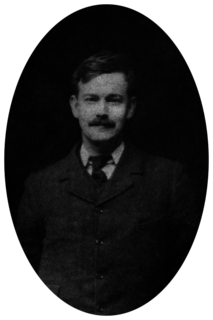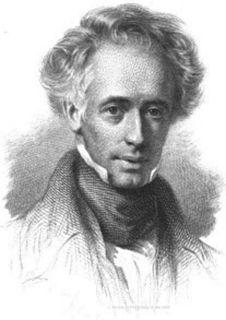A Quote by John Maynard Keynes
The power to become habituated to his surroundings is a marked characteristic of mankind.
Quote Topics
Related Quotes
The first theft marked Buck as fit to survive in the hostile Northland environment. It marked his adaptability, his capacity to adjust himself to changing conditions, the lack of which would have meant swift and terrible death. It marked, further, the decay or going to pieces of his moral nature, a vain thing and a handicap in the ruthless struggle for existence.
There is one characteristic of the present direction of public opinion, peculiarly calculated to make it intolerant of any marked demonstration of individuality. The general average of mankind are not only moderate in intellect, but also moderate in inclinations: they have no tastes or wishes strong enough to incline them to do anything unusual, and they consequently do not understand those who have, and class all such with the wild and intemperate whom they are accustomed to look down upon.
It is characteristic of genius to be hopeful and aspiring. It is characteristic of genius to break up the artificial arrangements of conventionalism, and to view mankind in true perspective, in their gradations of inherent rather than of adventitious worth. Genius is therefore essentially democratic, and has always been so.
A tendency to resume the same mode of action at stated times is peculiarly the characteristic of the nervous system; and on this account regularity is of great consequence in exercising the moral and intellectual power. All nervous diseases have a marked tendency to observe regular periods; and the natural inclination to sleep at the approach of night is another instance of the same fact.
There is a myth, sometimes widespread, that a person need only do inner work...that a man is entirely responsible for his own problems; and that to cure himself, he need only change himself....The fact is, a person is so formed by his surroundings, that his state of harmony depends entirely on his harmony with his surroundings.
A child in his earliest years, when he is only two or a little more, is capable of tremendous achievements simply through his unconscious power of absorption, though he is himself still immobile. After the age of three he is able to acquire a great number of concepts through his own efforts in exploring his surroundings. In this period he lays hold of things through his own activity and assimilates them into his mind.
For anyone with the traits - of feeling himself victimized, of seeking to be the strongman who resolves everything, yet sees truth only through his own self and negates all other truth outside of it - is bound to become more malignant when he has power. Power then breeds an intensification of all this because the power can never be absolute power - to some extent it's stymied - but the isolation while in power becomes even more dangerous. Think of it as a vicious circle. The power intensifies these tendencies and the tendencies become more dangerous because of the power.



































